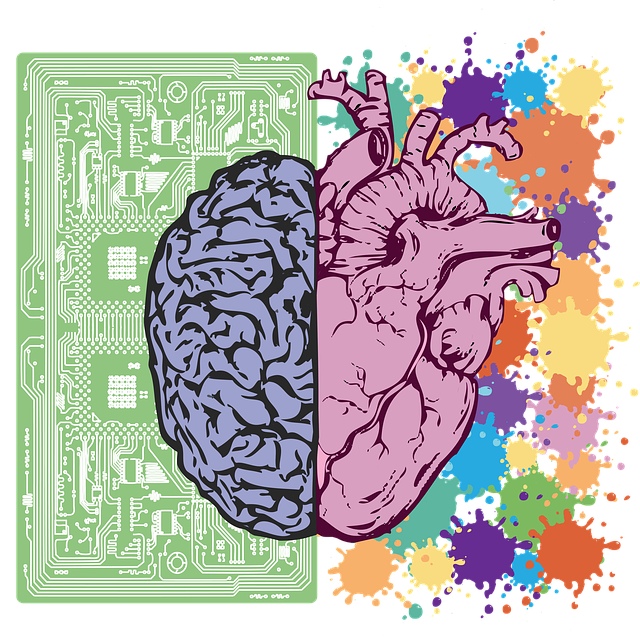
Do we have an emotional inflammatory system?
Did evolution create emotional inflammation systems by leveraging our physical inflammation system? Evolution designed our inflammatory system to help the body defend our physical self and not lose this “self” to our environment. What might be parallels for our emotional or psychological self? A recent review in Science provides some interesting ideas. Is being reactive our emotional immune system’s response to defend self? Try not to get too inflamed by my line of thinking in this post; stay curious.
Like inflammation, emotional reactivity is both a process and a state. The process is one of activating defence mechanisms. The defence responses of the inflammation system go from imperceptible processes involved in maintaining homeostasis to the painful, swollen, red, inflamed areas around a wound. Most people understand inflammation and reactivity as this more visible acute level response. I find it interesting that we will use inflamed to describe an extreme emotional state. (The written English origin of this usage goes back to the 1400s in Europe).
Reactivity and homeostasis
Inflammation processes help keep the body in homeostasis. Think “maintaining the status quo” or our “resting state” as being in homeostasis. Anything that disturbs this homeostasis can induce an inflammatory response. Because of this, obesity, lack of sleep, illnesses, or getting old can promote inflammation because the homeostasis has been upset. Similarly, we have a “reaction” when our psychological homeostasis gets upset. Thus, a reaction signals that something has disturbed our psychological homeostasis (aka self). The reaction is part of the process of getting the self back to the status quo.
Reactivity can be adaptive
Reactivity is an adaptive process to help one maintain psychological homeostasis. But, like inflammation, which can become chronic, reactivity can become chronic. This happens when our psychological homeostasis gets perturbed often and doesn’t get back to “normal”. That someone is “always on edge” or is “walking on eggshells” indicates a chronic disruption to the normal relationship homeostasis.
Proactive reactivity
Our body’s inflammation response can be reactive or proactive. It’s reactive for things like a physical injury. But the body can recognize things that will cause damage (like bacteria) and respond to neutralize their impact. This requires a less intense response than the response to a full-blown bacterial infection or physical wound. The body holds on to self “prospectively by detecting characteristic activities associated with their damaging effects on the host” (See the reference below). This quote is not about your partner, but it sounds like it could be!
Preemptive defence processes, an outcome of evolution, work to maintain homeostasis and keep us healthy. These include behaviours (e.g., feeding) and physiological processes (e.g., blood sugar levels). A disturbance in these processes results in aspects of the inflammation response being used to correct the disturbance. For example, diabetes is a disturbance in a process that maintains blood sugar homeostasis and can lead to greater inflammation.
Self and the immune system
I summarize this as follows. When a disturbance in our homeostasis occurs, aspects of our inflammation response are used to restore our homeostasis. Too much disturbance of my homeostasis will cause a greater and longer-lasting inflammation response, which is unhealthy. This is how a short-term, adaptive, and useful response becomes unhealthy. In addition, a disturbance to the self’s homeostasis can promote reactivity. If this happens too often, for too long, it’s not healthy either. I believe that my threats perception and my reactive responses are from my emotional inflammatory system that has a corresponding inflammatory response as I work to get back to homeostasis. One more reason to learn how to regulate my reactivity!
Define Self, reduce inflammation
We are more biologically based (or influenced by feelings) than we understand. The Science article mentioned everything but the family as an influence on the inflammatory system. Yet from the perspective of evolution, the family was the single biggest influence on survival. It thinks our inflammatory system is one more piece of the puzzle to help us understand human functioning. Defining self is the emotional inflammatory system parallel to the inflammatory system defining what it will do and not do to keep your physical body healthy. In fact, the two support each other. So defining a self could help you maintain a lower level of inflammation and gain the corresponding benefits.
Dave Galloway
dave.galloway@livingsystems.ca
The inspiration for this post came from this Science article: The Spectrum of Inflammatory Responses.
You can find more information on Bowen Theory here.
For an excellent introduction to human social genomics, see this article: Human Social Genomics.
Better yet, check out this past conference: Chronic Illness in the Family.